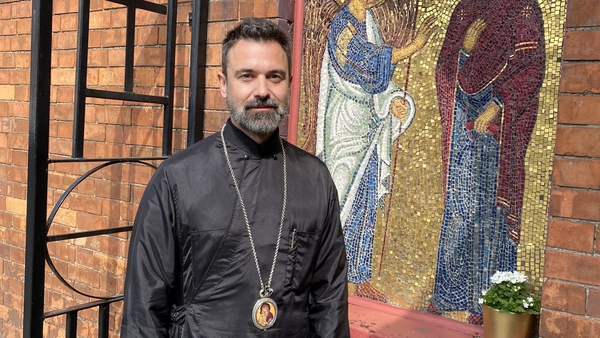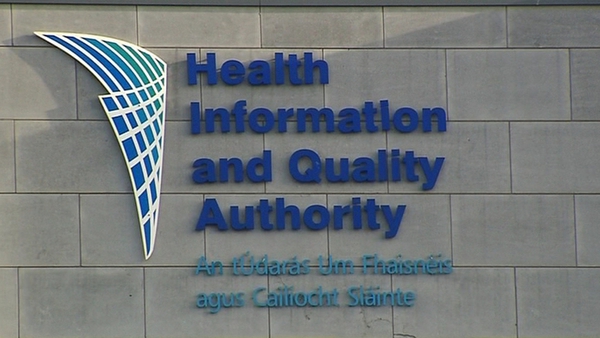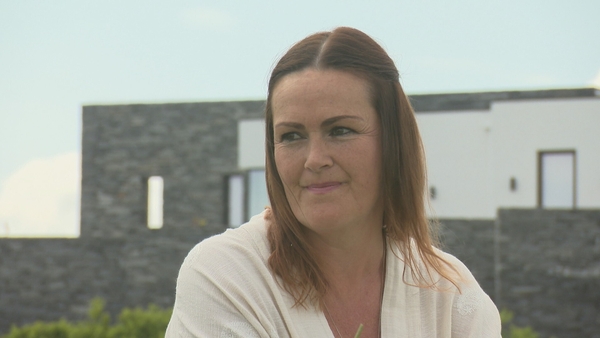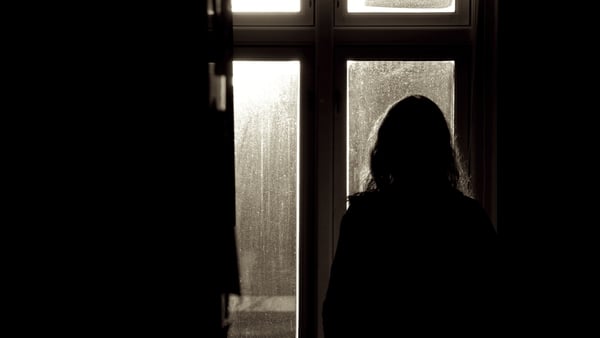The Government has approved a new €363m strategy to tackle domestic, sexual and gender-based violence.
The Minister for Justice Helen McEntee said the plan, which includes tougher penalties and a doubling of refuge places, will take a 'zero tolerance' approach.
She told RTÉ's Prime Time that nine counties which currently do not have a domestic violence refuge will receive one under the new strategy.
The implementation plan contains 144 actions to be implemented this year and next year through new oversight structures.
The central aim is zero tolerance of domestic, sexual and gender-based violence in Irish society.
However, the plan says this can only be achieved through a whole of society effort, and that domestic, sexual and gender-based violence cannot be treated as a criminal justice issue alone.
The strategy also seeks to clearly identify children and young people as both witnesses and victims and survivors.
The plan for the first 18 months was published by Minister McEntee today, with annual action plans to follow for every subsequent year of the lifetime of the zero tolerance strategy.
The Taoiseach Micheál Martin described it as "an incredibly important moment" for the country. He said it signaled the Government's determination to affirm and protect some of its most vulnerable people.
Minister McEntee said zero tolerance will be achieved through greater education and awareness to change attitudes and teach respect.
She also said it requires supporting victims with compassion when they take the "brave step and come forward to seek our help".
Read more: Key points in the Govt's new domestic violence plan
On prosecution, the plan is to increase the maximum sentence from five years to ten years for assault causing harm - one of the most common charges in cases of domestic abuse.
This measure will be included in the Criminal Justice (Miscellaneous Provisions) Bill which will be enacted by the end of the year.
The strategy includes updated secondary school curricula at junior and senior cycle to include consent, domestic violence, coercive control and safe use of the internet.
The new junior cycle curriculum will be finalised in September 2022 for public consultation and rolled out in September 2023, with revised senior cycle curriculum finalised by September 2023 for public consultation and rolled out in September 2024.
A revised primary school curriculum to include the same topics, taught in an age appropriate way, will be finalised for consultation by 2024.
There will be "ambitious awareness raising campaigns" to focus on attitudes among men and boys, to increase awareness of services and supports among victims and to reach migrant and minority communities, as well as the rollout of the national campaign on consent.
An online hub on consent and sexual awareness across the third-level sector will also be rolled out.
The plan also includes the collection of data on the rate of sexual violence and harassment across the higher education sector.
When it comes to protection, the plan is to work to double the number of refuge spaces (an apartment type unit where victims of domestic abuse can seek safety) over the lifetime of the strategy, from 141 to 282.
This will be the fastest ever expansion of refuge spaces according to the Department and will ensure that every county has a refuge.
The number of safe homes will be increased - accommodation for victims and children in homes in the community, rather than refuges - by a third by the end of this year, up from 30 to 44 with further expansion over the duration of the plan.
A national support services for children as victims/survivors will be rolled out; as will a trauma-informed therapeutic counselling services for adults and children; trauma-informed parenting supports will also be rolled out.
The prosecution of domestic, sexual and gender-based violence cases by providing specialised training across the Office of Director of Public Prosecutions and strengthening training in An Garda Síochána will also be improved under the plan.
Opposition calls for more refuge places
Sinn Féin's Louise O'Reilly said that the Government's strategy is welcome but late.
She said that it would be "decades" before the country meets its obligations under the Istanbul Convention, in terms of the provision of refuge spaces.
Deputy O'Reilly told reporters outside Leinster House that this issue had to be urgently addressed.
The Fingal TD also said that the recruitment and retention of staff in the support services was a problem.
Social Democrats co-leader Róisín Shortall also said that the plan would still fall short of what is required under the Istanbul convention, although she welcomed the strategy as whole.
People Before Profit's Bríd Smith said the reality was that seven to eight woman are unable to secure refuge places on a daily basis and that many end up in homeless accommodation.
She welcomed that the "effort is being made" to address the problem but she called on the minister to move forward with the strategy "post-haste".
Doubling sentences a potential 'game changer'
Chief Executive of Women's Aid Sarah Benson said her organisation "applauds the ambition" of the plan, but it has long wanted a dedicated centralised focus in Government to tackle, not just the service provision or the policy, but also that coordinated policy piece.
Speaking on RTÉ's Morning Ireland, she praised Ms McEntee, who she said, along with her colleagues, has done "incredible hard work to get it to where it is now".
The CEO of the Offaly Domestic Violence Service has welcomed the doubling of refuge spaces over the next five years and the extension of spaces to every county.
Anne Clarke, a board member of Safe Ireland, said it is extremely difficult to get people into refuges and then move them into private accommodation.
She explained that there are nine counties that do not have any emergency accommodation and that victims of domestic violence are not inclined to move counties.
Ms Clarke said that this means that unfortunately the majority of people stay.
She said: "They make decisions around their children. They won't want to take their children out of school.
"They won't want to take children away from support networks and extracurricular.
"So it's extremely difficult then to mitigate against risk for that person who is in that serious abusive relationship."
Ms Clarke said doubling the maximum sentence for assault causing harm is hugely significant and she hoped that these would prove to be a game changer for domestic abuse victims.
Additional reporting: Karen Creed and Aisling Moloney





